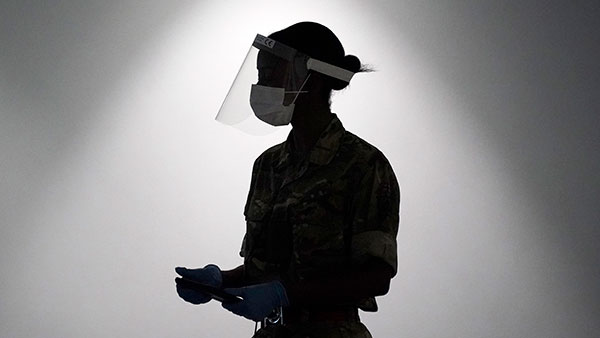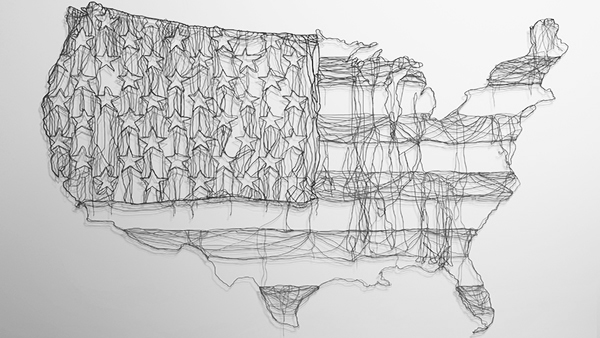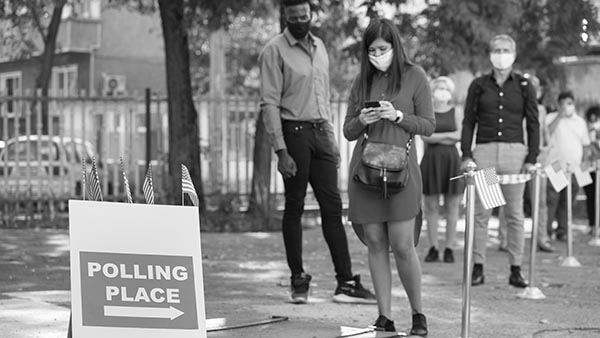We learnt important lessons about ourselves in 2020. One of the more surprising lessons was the degree of deep solidarity our society possesses. This came in sharp contrast to the rise of individualism that has been the focus of political critique over the past decades.
However, after the violent acts of President Trump-backed insurrectionists on Capitol Hill we shouldn’t underestimate how far our societies have pulled apart. A sacred democratic line has been crossed.
Yet we shouldn’t lose hope. In a poll the RSA published over Christmas there was a surprising commonality of support for diversity, confronting global heating urgently, spreading democracy more widely and fixing regional inequalities. Support for the latest lockdown is at 85 percent according to YouGov, with a highly vocal opposition to a collective Covid response in a tiny minority. None of this really suggests a society disintegrating under the weight of selfishness.
In The Upswing, a highly impressive broad perspective on America’s last century, Robert D. Putnam and Shaylyn Romney Garrett place cultural and political shifts in the context of an inverted U-curve. With a battery of data, they track economy, politics, society, culture, race and gender along an axis of ‘I’ versus ‘we’.
Relentlessly we are shown how consensus in American society was strong in the middle decades of the 20th century, a trend that begins in the aftermath of the ‘gilded age’ of the late 19th century. A gathering momentum for American progressivism over decades inflects this and then turns towards a second possible nadir in the America of Trump: rampant inequality and so-called ‘culture wars’. The nadir was evident this week as an election was denied, and the rule of law and democracy disregarded. We can also see this pulling apart, in a variety of different forms, in the UK and other European countries.
There is little doubt that we have seen the spread of the values of self-determination over the past half century. Even with public philosophies such as conservatism, the sense of moral ‘tightness’ – ie the degree to which community norms outweigh individual ethics and interests – is less restrictive than a century ago. Traditional values in such perspectives remain strong, but they are no longer as rigid. Society has mostly become ‘looser’ pretty much across the board.
Despite these deep undercurrents, viewing historic changes through an ‘I’ versus ‘we’ axis seems not to capture the essence of something important. A loosening of moral norms doesn’t necessarily equate to the individual pulling away from social bonds. And, on the ethical front, the degree to which there is a commitment to collectivism versus self-interest may be a different question altogether.
By way of illustration, there have been three dominant, broad (and rarely consistent) philosophies in modern America: the modern conservatism of Reagan and Bushes; the communitarianism of Bill Clinton; and the progressivism of Obama (and perhaps Joe Biden, though that remains ambiguous). None of them are particularly defined by individualism but combine varying elements of moral tightness versus looseness, and ethical collectivism versus self-interest.
Trumpism was an unusual political form, without any strong moral or ethical underpinnings but an ability to shape-shift to respond to both as required whilst raising emotional intensity. That shape-shifting became support for insurrection on Capitol Hill, bringing home the degree to which Trumpism reaches outside of democratic norms.
Something else seems to be at play that is beyond ‘I’ versus ‘we’. Putnam and Romney Garrett unearth it most clearly in their chapter on politics: ‘pulling apart’ versus ‘coming together’. However, this is also the story of culture, society and economics. We have not descended into atomistic individualism; we have pulled apart into ever more distant tribes of income, wealth, opportunity, culture, morality, ethics, partisanship. These are tribes of identity. We are not so much metaphorically bowling alone. We are ‘we the people’ – but in a whole series of divergent ways.
Unfortunately, one of the collectives is an increasingly culturally disconnected minority who define their own alternative reality. Yesterday, the edge of this minority stormed the Capitol building with a violent attempt to disrupt and destroy constitutional norms, and overturn an election. They were encouraged and incited to do so, and applauded for their delusion by President Trump himself.
America has seen what ‘pulling apart’ can look like and we have to hope it pulls back. It seems likely it will, given subsequent events, as leaders across the spectrum stepped in and Congress certified Biden as president. But there are warnings for all democracies.
The type of alternative reality we saw taken from right-wing news media punditry, podcasts and social media into the real world yesterday is also planted in the UK and other European democracies. Those who encourage the misuse of data to claim Covid-19 is less than seriously deadly; who claim ‘herd immunity’ where it does not exist; who encourage and spread conspiracies about authorities, science and services; and who sew doubt about the safety and efficacy of vaccines against available evidence, are creating a similar alternative reality. Leaders in Eastern Europe who spread conspiracies and lies about minority groups, and far-right parties across Europe who spread fear and hatred are all in same category. Lies and conspiracies matter and threaten social harmony, justice and human life.
Coming together doesn’t result from the simple swinging of the historical pendulum, although the weaknesses of a divided society are revealed in sequential democratic, financial, health, and climate crises as well as ongoing economic, mental and physical misery for too many. Crisis and suffering create motivating possibilities for change – but they can also lead to a turning against others and battening down the hatches. We’ve seen a fair amount of that in recent years.
In her magisterial study of disaster and its aftermath, A Paradise built in Hell, Rebecca Solnit gives us examples of human kindness, calmness, and solidarity emerging in the worst of circumstances. Given the right forms of leadership and action – ones that shares power, respect and mutuality – these circumstances can lead to a longer term ‘coming together’. It is not a coincidence that the ‘coming together’ of society’s tribes was strongest after World War II. We have to hope that the solidarity we have seen in the past year will sustain.
We also have to hope that America sees yesterday’s events as a warning of even deeper malaise. But America has renewed before and so have we. We need to, because the current path leads nowhere.
A movement of people came together to shift American societies – and tribes – towards greater togetherness by the middle of the last century. This included campaigners, civil society innovators and agitators, journalists and commentators, academics, policy makers, trade unions and community organisers, judicial activists and progressive law-makers, as well as progressive politicians in both Republican and Democratic parties alike (Teddy Roosevelt, Woodrow Wilson and Franklin Roosevelt most notably). Similar movements were seen across many democracies. That is what it will take again: just as necessary now as a century ago.
The Putnam/Romney Garret thesis analysis is powerful, well-evidenced and hopeful. An even greater source of hope is who we are as a species. We are just not hard-wired for individualism at all. We are a collective species: deeply connected and morally fused. The ‘I’ and ‘we’ in our culture and character are forever in tension. The question is not whether we come together – but how.
Is there a ‘bigger we’ or are we a series of homogenous but ultimately polarised tribes of interest, culture, and moral disposition? Unless we, through active and painstaking work, can be a ‘bigger we’ then the challenges of the time – from climate emergency, to democratic decay, to pandemic, to insecurity – will sink us. That doesn’t have to happen.
Related articles
-
What have we learned about ourselves in 2020?
Blog
Anthony Painter
For all the profound loss, sadness and despair this year has seen, real strengths have emerged.
-
Can President Biden bring America together again?
Blog
Anthony Painter
There is a long road ahead for the new president.
-
Biden’s first mandate: a pandemic GI bill
Comment
Peter Marber Julian Savulescu
Pandemic policies that can be both fair and equitable, while also jumpstarting the world economy.




Be the first to write a comment
Comments
Please login to post a comment or reply
Don't have an account? Click here to register.